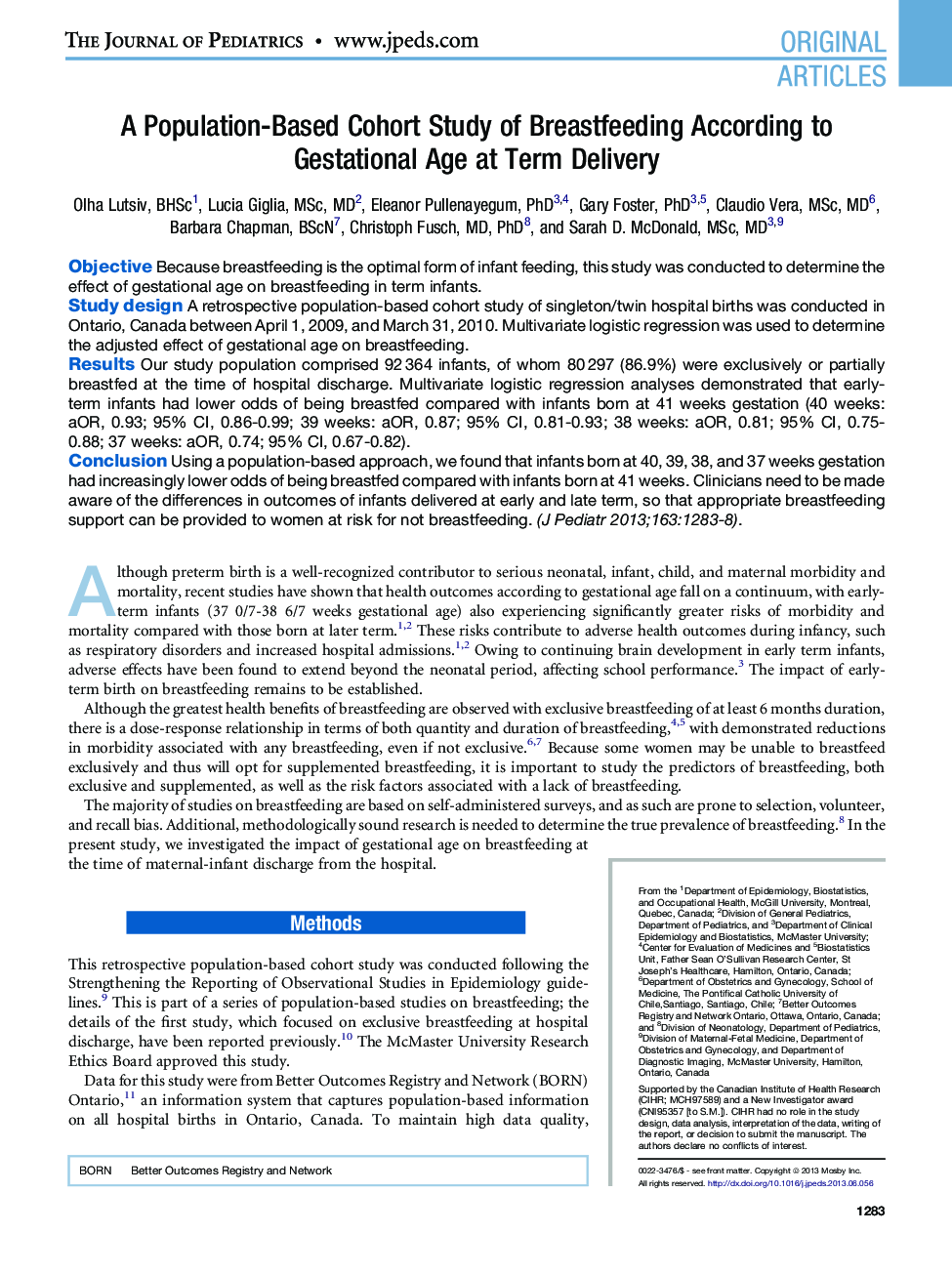| Article ID | Journal | Published Year | Pages | File Type |
|---|---|---|---|---|
| 6223223 | The Journal of Pediatrics | 2013 | 6 Pages |
ObjectiveBecause breastfeeding is the optimal form of infant feeding, this study was conducted to determine the effect of gestational age on breastfeeding in term infants.Study designA retrospective population-based cohort study of singleton/twin hospital births was conducted in Ontario, Canada between April 1, 2009, and March 31, 2010. Multivariate logistic regression was used to determine the adjusted effect of gestational age on breastfeeding.ResultsOur study population comprised 92â364 infants, of whom 80â297 (86.9%) were exclusively or partially breastfed at the time of hospital discharge. Multivariate logistic regression analyses demonstrated that early-term infants had lower odds of being breastfed compared with infants born at 41 weeks gestation (40 weeks: aOR, 0.93; 95% CI, 0.86-0.99; 39 weeks: aOR, 0.87; 95% CI, 0.81-0.93; 38 weeks: aOR, 0.81; 95% CI, 0.75-0.88; 37 weeks: aOR, 0.74; 95% CI, 0.67-0.82).ConclusionUsing a population-based approach, we found that infants born at 40, 39, 38, and 37 weeks gestation had increasingly lower odds of being breastfed compared with infants born at 41 weeks. Clinicians need to be made aware of the differences in outcomes of infants delivered at early and late term, so that appropriate breastfeeding support can be provided to women at risk for not breastfeeding.
